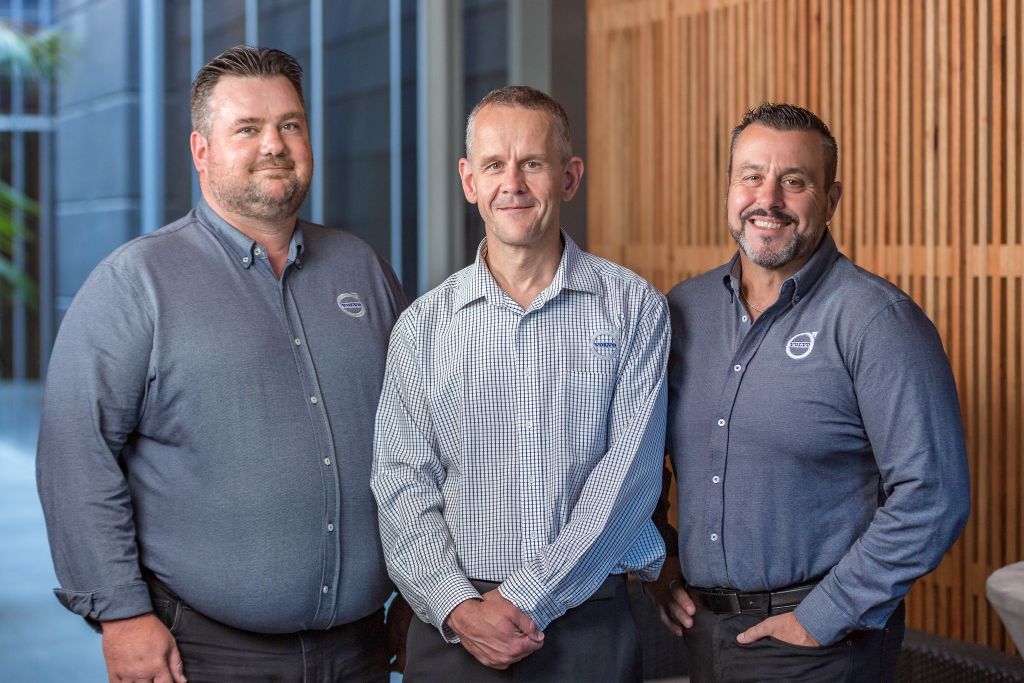Volvo's journey towards Electromobility


After taking its environmental commitments to the next level in 2013 with the release of the B5L Hybrid chassis, Volvo Bus Australia (VBA) looks forward to seeing its BZL fully electric chassis launch in 2021, and enter the Australian market in 2022.
Preparing to see both its hybrid chassis and fully electric chassis enter the market within less than 10 years of each other, is something that would not be possible without the astute guidance and leadership of VBA’s primary electromobility expert and engineer, Dean Moule.
“We embarked on the next phase of the electromobility project with the electric chassis in 2016 by scoping out what we wanted to do and how we would achieve it, in order to meet the expectations of our marketplace,” states Moule.
Moule reflects on similarities between the project goals behind the B5L S-Charge and BZL electric chassis, where extensive time and resources were invested in creating a quality, safe and reliable product.
“As far as executing the plans went, we wanted to be a sustainable company and set up goals that pertained to the sustainability benchmarks of the company and industry. We’ve taken our time to devise and formulate plans that deliver a reliable and safe product – as opposed to rushing our process. There were similarities between the hybrid and BZL project, in wanting to deliver a product that the customer would be happy with. That is the number one goal. In line with our core value of safety, we also want to ensure that our vehicles are safe and reliable and ultimately deliver a great customer experience,” says Moule.
VBA have utilised Volvo’s stringent European standards to provide a safe, reliable and consistent framework for developing and supporting the BZL chassis, just as it did for its hybrid product.
These standards have been at the forefront of VBA’s planning and exectution throughout its electromobility journey and strongly reinforce VBA’s values of quality, safety and environmental care. Upon reflection of these values, Moule details a committment to the BZL’s features and capabilities throughout the project.
“We always want to improve in every possible area, and with electromobility we want to keep looking at our projects as product evolutions, not revolutions,” says Moule.
“Everything is being constantly refined. I think the biggest thing that we take from this is that we’ve utilised the extensive experience with the electric vehicle in Europe and we’ve taken an experienced and proven driveline and then packaged it into a new chassis for the world market – and specifically for the Australian market – allowing it to be built on by our body build partners. It runs the same electrical system, suspension and pneumatic system as our B8RLE Euro6 and Hybrid products so it’s not a complete retrain for the technicians, it’s an evolution,” continues Moule.
This quality translates to various BZL benefits from a product perspective, and Moule explains evident advantages for Australian customers and operators.
“We will offer a full low floor vehicle city bus, in providing low profile tyres, easy boarding for passengers and a low floor platform throughout the vehicle. It’s one thing to have a high quality and reliable vehicle for the operator, and its another that the passenger has a good experience in getting on the vehicle easily and manoeuvring comfortably. We will offer a wide clear space inside the vehicle that allows the passenger to have a good experience in addition to the bus being quiet,” says Moule.
“From an operator perspective, it will have great accessibility and serviceability at every step of the way. The way the components will be packaged and the way the vehicle will be built, is to ensure that servicing and repairs can be carried out with minimum fuss,” continues Moule.
The accessible design of the BZL chassis ensures optimum servicing, presenting the advantages of taking less time to service and costing less to do so – ensuring that buses are back in service more often and on the road where they should be.
“The BZL is made for a long life on the road, in line with Australian standards and our customer’s expectations of what Volvo product durability will be – it’s a chassis designed for the long-haul,” says Mitch Peden, General Manager Volvo Bus Australia.
“We take great pride in that our electric bus offering will be introduced to the Australian market at the right time; we’re taking time to set up long-term partnerships in the e-mobility space, we’re implementing specialised training – ultimately we’re busy ensuring this product is the highest quality, has the highest safety standards, and will last in the Australian environment.”